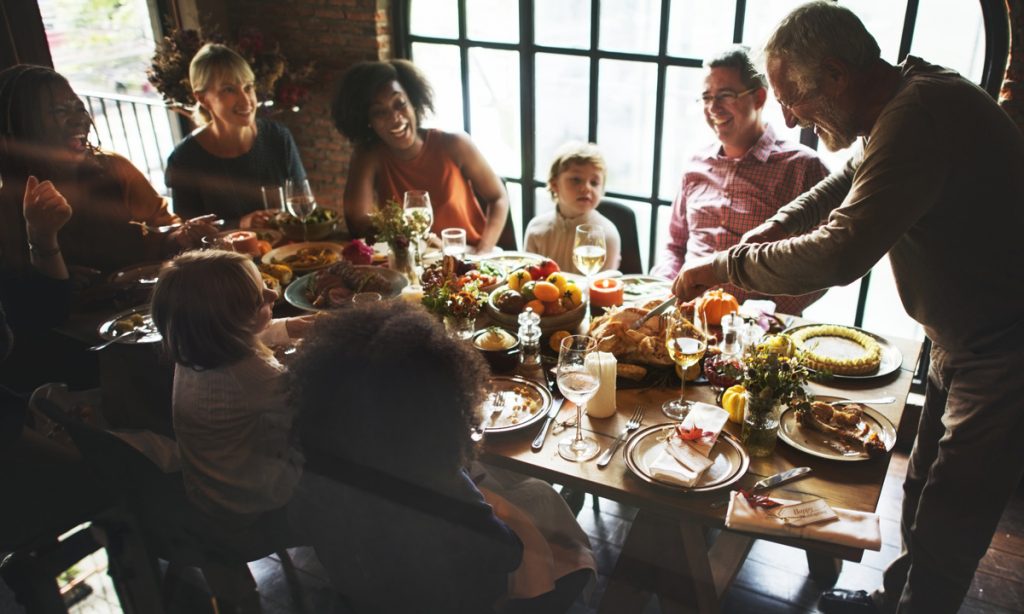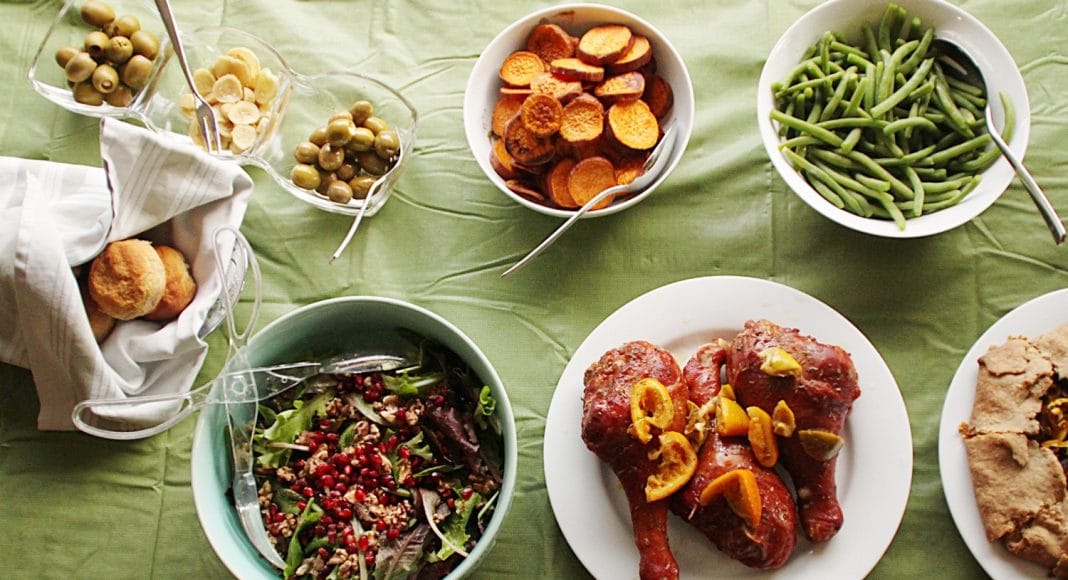Thanksgiving and politics don’t mix, but if the subject of marijuana legalization comes up around the Thanksgiving dinner table this year, here are some handy tips.
As Thanksgiving Day approaches, take the time to truly count your blessings. If you are a cannabis consumer, be thankful that you are among the majority of Americans that live in a state where there is some form of legal marijuana — whether it be recreational, medical or CBD only.
There are now 11 states, plus Washington D.C., that allow adults to use marijuana recreationally, and 33 states that offer marijuana for medical purposes to qualifying patients. Many of these are among the nation’s most populated states.
RELATED: How To Talk About Cannabis With The Elderly
Despite this bit of good news, it still can be difficult to have the “marijuana talk” with those family members who are wary of these progressive new laws. Thanksgiving and politics don’t mix, but if the subject of marijuana legalization comes up around the Thanksgiving dinner table this year, here are some handy tips:
Be Chill
The worst thing you can do is be in attack mode. Yes, you are on the right side of history, but nobody likes a know-it-all without a little empathy. Listen to the other side and truly try to understand where they are coming from. A lot of your friends and family members may have grown up during the Reefer Madness days or the Just Say No days. It takes some understanding.
Sometimes, their fears can easily be assayed with calm … and facts.
The War On Drugs Did Not Work
By any objective measure, the United States’ War on Drugs has been a trillion-dollar boondoggle. All that money did nothing to alleviate drug use.
Here’s how Steve Downing, a former deputy chief of the Los Angeles Police Department, described it:
“The war on drugs was a failure, I should know as I once led it. Our policies have done more harm to people and community than marijuana. We demonize people. We unnecessarily criminalized people.”
The War on Drugs was waged to shrink the supply of illegal drugs. Instead, drug prohibition has created a lucrative black market for drug cartels and other criminal enterprises. A RAND Corporation study suggests marijuana accounts for about 20 to 30% of drug cartels’ revenue. Legalizing cannabis would slash that revenue from the bad guys.
RELATED: How To Approach Your Baby Boomer Parents About Weed

It’s A Social Justice Issue
America has the largest incarcerated population in the largest in the world.
A report from the American Civil Liberties Union revealed that there are hundreds of thousands of arrests for marijuana possession each year. A look at the numbers shows that race plays a major factor. Studies prove that black and white Americans use cannabis at similar rates. But black citizens are nearly four times more likely to be arrested than whites for marijuana possession.
Here is what Washington D.C. Police Chief Cathy Lanier says about these arrests:
“All those arrests do is make people hate us. … Marijuana smokers are not going to attack and kill a cop. They just want to get a bag of chips and relax. Alcohol is a much bigger problem.”
It is clear that America cannot continue to incarcerate cannabis consumers. The financial cost is exorbitant, but the social cost is even greater. There is a better way.
Speaking Of Finances …
A report from the Tax Foundation, a nonpartisan think tank, found that legalizing cannabis could generate up to $28 billion in federal, state, and local tax revenue. Yes, Americans essentially are throwing away nearly $30 billion annually in tax revenue.
With California passing recreational cannabis, it alone will triple the size of America’s $6 billion legal pot industry within 10 years.
RELATED: How To Know It’s Time To Share Marijuana With Your Parents

Hey, It’s The Will Of The People
A Gallup poll earlier this year found that two in three Americans support legalization.
According to Gallup:
When Gallup first asked this question in 1969, 12 percent of Americans supported the legalization of marijuana use. In the late 1970s, support rose to 28 percent but began to retreat in the 1980s during the era of the “Just Say No” to drugs campaign. Support stayed in the 25 percent range through 1995, but increased to 31 percent in 2000 and has continued climbing since then.
Americans have shifted more than 50 percentage points on the issue since Richard Nixon’s first year in the White House. That is seismic.
Give Hugs
You may win a few arguments. You may fail to sway some family members. No matter what happens, give a hug or a handshake. Keep smiling. It’s Thanksgiving! Enjoy the day with your loved ones. And know that you are on the right side of history.


